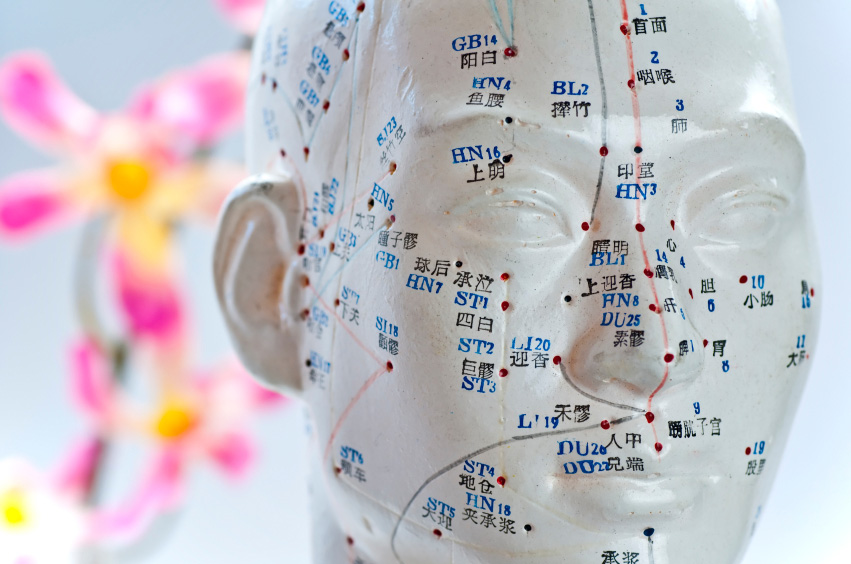What is acupuncture?
The practice of acupuncture is based on the principles of Traditional Chinese Medicine (TCM). It has a history of more than 3000 years of successfully diagnosing, treating, and preventing illness. Acupuncture involves inserting very fine, pre-sterilized, disposable (one time use) surgical grade stainless steel needles into specific points to stimulate the body’s natural ability to heal. When appropriate, acupuncture may be combined with other TCM methods, such as moxybustion, acupressure or cupping.
How does acupuncture work?
Everyone has acupuncture channels, called meridians, which flow throughout the body distributing Qi (pronounced “chee”). Qi can be thought of as vital energy or life force.
Health problems arise when there is an obstruction in the flow of Qi or when the supply of Qi is inadequate. Acupuncture works by removing these obstructions or by normalizing the Qi flow, thereby restoring health and normal function. Modern research has shown that stimulating acupuncture points in the channels decreases inflammation, increases endorphins to relieve pain, regulates blood circulation, hormone secretion, and boosts the immune system.
Does it hurt?
Experiences with acupuncture vary from person to person. Many feel nothing at all while some may notice a small sensation as the needle is inserted. Once the needle is introduced, one may experience local feelings of tingling, distension, or heaviness. These can all be considered positive sensations.
Are there any side effects?
Acupuncture is a safe, effective, and drug-free therapy when practiced by a competent Acupuncturist. Many people often report the positive side effects of increased relaxation, improved sleep, and a general sense of wellbeing. Risks are usually minimal and mild, please talk to your practitioner for full details.
What does acupuncture treat?
The Acupuncture Evidence Project (2017 John McDonald, Stephen Janz) performed systematic review of acupuncture and identified evidence of positive effect for the following conditions or symptoms:
- Allergic rhinitis
- Chemotherapy-induced nausea and vomiting (with anti-emetics)
- Chronic low back pain
- Headache
- Knee osteoarthritis
- Migraine prevention
- Postoperative nausea & vomiting
- Postoperative pain
In addition, the report found potential benefit for a variety of other conditions, such as stroke, anxiety, adult asthma, obesity, insomnia, constipation, dry eye, IBS, labour pain, hot flashes, TMJ pain, restless leg syndrome and more!
In addition, you may want to browse the specializations practiced by AAATCMD members.
Has there been any research?
Throughout the history of Traditional Chinese Medicine extensive and thorough research has been done. This research has documented and verified the benefits of acupuncture, herbal medicines and other related TCM therapies. In more recent years, research has been conducted in conjunction with modern Western Medicine. Numerous papers reporting experiments and clinical trials have been published internationally in medical journals, newspapers, and on the Internet. Research continues today in China, as well as in many other countries around the world.
Is acupuncture regulated by the government?
Registered Acupuncturists in Alberta are currently governed by the province’s Health Professions Act regulations.

